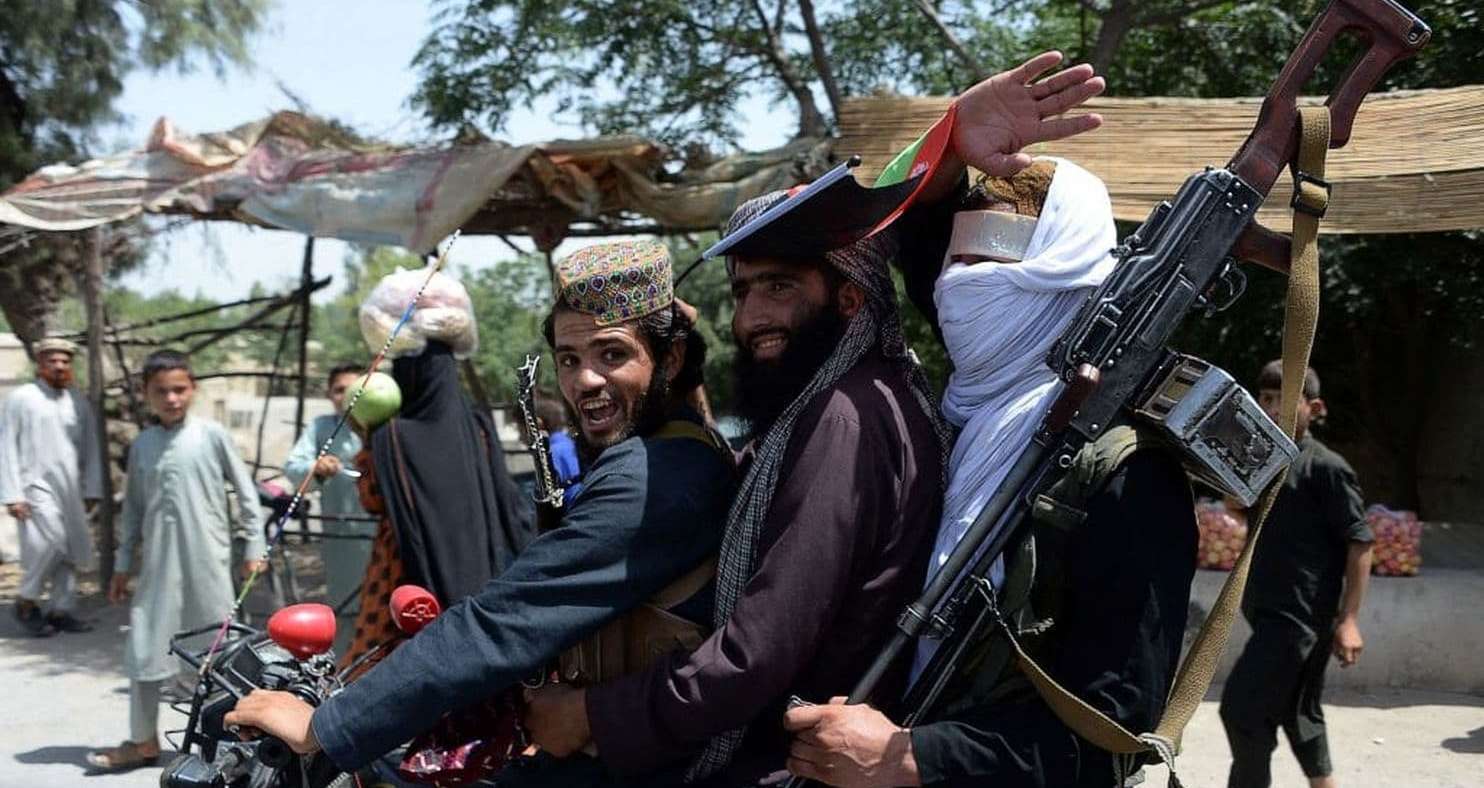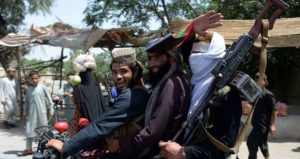Latest News
Taliban Built Parallel State in Many Parts of Afghanistan, Report Says

 A new report has been released looking into the increasingly ambitious “parallel state” being run by the Taliban across Afghanistan.
A new report has been released looking into the increasingly ambitious “parallel state” being run by the Taliban across Afghanistan.
“Life Under the Taliban Shadow Government,” a detailed study published Thursday by the Overseas Development Institute, describes a “sophisticated system of parallel governance,” with commissions for each area of service, such as health, justice and finance, operating in numerous districts fully or partly controlled by the insurgents. The study surveyed 20 such districts across seven provinces.
The main conclusions of the report, written and primarily researched by Ashley Jackson, are that the Taliban sets the rules in “vast swaths” of Afghan territory but is far more concerned with influencing people. It has largely shifted from outright coercion to “creeping influence” over Afghans through services and state activities, it is often part of the local “social fabric,” and it views itself as preparing to govern the country, not just to participate in political life, whenever the 16-year conflict ends, the report says.
In many areas, the report finds, Taliban representatives interact almost routinely with local government officials, aid agencies and other groups, negotiating terms in a hybrid system to deliver health care, education and other services. Taliban bureaucrats collect taxes and electric bills, and their judges hear civil and criminal cases — some traveling by motorbike between hearings.
Although the first Taliban shadow governments were established more than a decade ago, the report documents how widely they have spread, despite years of Afghan and foreign military resistance. It also shows how they have evolved from using force and intimidation against local populations to building carefully run, accountable systems that address people’s needs, which some residents say they find more honest and effective than government control.
The report says Afghan and foreign officials are “worryingly unaware” of how assiduously the Taliban has worked to exert local control, make bargains and influence services. Today, its leaders view themselves not as insurgents but as a “government in waiting,” the report says.
At a time of growing national hopes for a negotiated peace, the consolidation of Taliban administrative control in numerous areas seems to challenge the official argument that the insurgents might accept a role as just another political force in exchange for giving up arms and settling the war.
Over time, the study found, Taliban policies in areas of control shifted from repressive violence to cooperation and public relations. By 2011, Taliban leaders had signed agreements with 28 aid organizations, including permission to conduct polio vaccination drives. As NATO forces withdrew, Taliban professionalism grew.
“We could be less warlike,” one Taliban member said. Unlike the amateur Taliban rulers of 1996 to 2001, the insurgents now have a seasoned, “quasi-professional core of individuals” to run things, the report says.
One of the most dramatic areas of evolution in Taliban attitudes has been toward education. In areas under its control, there is better teacher and pupil attendance, less theft and more order, although the Taliban vetoes texts on modern topics and may forbid English from being taught. On the whole, a majority of people interviewed “felt that the Taliban had improved” how public education was run.
Source: The Washington Post

Latest News
Iran, Pakistan leaders raise concerns over ‘terrorist groups’ in Afghanistan

Following a two-day official visit to Pakistan, Iranian President Ebrahim Raisi and Pakistan’s Prime Minister Shehbaz Sharif issued a joint statement emphasizing the need to further expand commercial and economic cooperation and transform the common border of the two countries from a “border of peace” to “border of prosperity”.
The two leaders also strongly condemned aggressions and crimes of Israel in Gaza, and demanded an immediate and unconditional ceasefire, as well as unimpeded humanitarian access to the besieged people of Gaza.
Numerous other issues were also discussed but on the topic of Afghanistan, they jointly declared their commitment to the development of Afghanistan as a peaceful, united, independent country free from the threats of terrorism and drug trafficking.
According to the statement the two countries pointed out that the existence of terrorist organizations in Afghanistan is a serious threat to the security of the region and the world.
The two sides stressed their desire to strengthen cooperation in the field of fighting terrorism and ensuring security and creating a united front against terrorism.
They also discussed the importance of coordinating regional and international efforts to ensure security and stability in the region.
“While respecting the sovereignty and territorial integrity of Afghanistan, the two sides recognized that increasing participation of all strata of Afghans in basic decision-making will lead to the strengthening of peace and stability in this country,” the statement read.
Latest News
Over 1,000 Afghan refugees forced out of Pakistan in one day

The Ministry of Refugees and Repatriations (MoRR) says over 1,000 Afghan migrants were forcibly returned from Pakistan on Tuesday through Spin Boldak border crossing in Kandahar province, the ministry said in a statement.
The ministry stated that based on information provided by the Spin Boldak Kandahar border command, these returnees comprised 191 families, totalling 998 people.
In addition, three migrants released from Pakistani prisons were also returned, according to the statement.
The statement added that after registering the returnees, the refugees were referred to the offices of the International Organization for Migration (IOM), the World Food Program (WFP) and the United Nations High Commissioner for Refugees (UNHCR).
Each family received 10,000 afghanis – paid to them by the Islamic Emirate.
In another statement, the ministry said that 2,783 migrants living in Iran voluntarily and forcibly returned to the country during this week.
Latest News
Afghanistan’s minister of transport and aviation attends regional meeting in Uzbekistan

Hamidullah Akhundzadeh, acting Minister of Transport and Aviation, headed a delegation to Uzbekistan for a ‘Six-Party Corridor’ meeting that included representatives from Afghanistan, Russia, Belarus, Pakistan, Kazakhstan and Uzbekistan.
On the sidelines of this meeting the Afghanistan delegation discussed trade through the corridor with the other five relevant countries.
According to the ministry of transport and aviation, Akhundzadeh met with the deputy ministers of transport of Russia and Belarus.
He also discussed ways to expand transit between Afghanistan and Russia; and Afghanistan and Belarus, and provide the necessary facilities to achieve this.
The ministry added that the acting minister had a bilateral meeting with the Minister of Transport and the Special Representative of the President of Uzbekistan on Afghanistan and discussed the expansion of road transport between the two countries.
-

 Sport4 days ago
Sport4 days agoAfghanistan Champions League kicks off with grand opening ceremony
-

 Regional5 days ago
Regional5 days agoIran’s foreign minister downplays drone attack, says Tehran investigating
-

 Latest News4 days ago
Latest News4 days agoPakistan’s frontiers minister stresses ‘dignified’ return of Afghan refugees
-

 Business5 days ago
Business5 days agoAfghanistan’s economic prospects are bleak: World Bank
-

 Latest News4 days ago
Latest News4 days agoMore than 800 Afghan refugees deported from Pakistan in two days
-

 Regional2 days ago
Regional2 days agoIranian president lands in Pakistan for three-day visit to mend ties
-

 Climate Change3 days ago
Climate Change3 days agoMassive river flooding expected in China, threatening millions
-

 Latest News4 days ago
Latest News4 days agoChinese keen to invest in Panjshir-Kabul water conduit project














